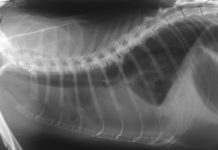Just like people, our cats may also develop allergies.
This occurs when their immune systems become sensitive to substances present in their surroundings. Called allergens, these exasperating substances might not bother you or some other animals at home. However, as the cat’s body tries to remove these offending matters, it may show all kinds of symptoms. Allergies in cats are actually normal. Read on through this article and get to learn more about this topic.
Allergies on Cats: Three Major Categories
Due to the fact that there is such a wide array of allergens, cat allergies are usually divided into three major categories: food allergies, environmental allergies, and flea allergies.
Food Allergies

Unluckily, the poor quality of the pet foods may cause some allergic reactions in pets of any age. Further, food allergies may cause cats to scratch their own heads and lead to gastrointestinal reactions. This includes vomiting and diarrhea. You can talk to your vet regarding the transition of your cat’s diet and eliminate some allergens. One of the most common allergens in the cat’s diet is chicken. In addition, getting rid of these allergens is the first step to relieving the symptoms.
Environmental Allergies
Various outdoor allergens or irritants may cause allergic reactions in cats. Pollen from weeds, grasses, and trees may all cause itchy skin and runny eyes. Most especially in outdoor cats, which are exposed to everyday allergens. Mildew, dust, and mold may affect any cat, including the indoor ones. Some other allergy perpetrators include pollution, smoke, medications, perfumes, or cleaning products. Moreover, allergens may also come in plastics, rubber, and fabrics.
Flea Allergies
A lot of cats are allergic to fleas and become so remarkably itchy after getting bitten only once or twice. Furthermore, you might not be able to find any evidence of fleas on the cat having flea allergies. Scratching, licking, and/or biting especially around the tail base, flanks, belly, thighs, and necks may be indications of flea allergies.
Symptoms of Allergies on Cats
Kittens that have allergies are often so itchy and have some skin issues that come with allergic dermatitis. Furthermore, they may also exhibit some of the following symptoms:
- Sensitive paws
- Swollen paws
- Paw chewing
- Snoring due to inflamed throat
- Diarrhea or vomiting
- Ear infections
- Runny, itchy eyes
- Wheezing, coughing, sneezing, especially if the cat has asthma
Moreover, there are a variety of allergens, which may cause the following symptoms:
- Some cat litters
- Prescription drugs
- Household cleaning chemicals
- Flea-control chemicals
- Colognes and perfumes
- Food
- Organic substances, mildew, mold, plants, grass, and pollen
Gastrointestinal symptoms commonly go with food allergies. Therefore, it is important to avoid feeding cats food that they are allergic to. Furthermore, allergies have the tendency to be way more common to outdoor cats as they are more exposed to a much wider range of allergens, especially from organic matter and plants.
Diagnosis of Cat Allergies
In case allergies are making your cat miserable, the best thing for you to do is to pay your vet a visit. Your vet will initially do a whole physical and history examination for your cat. This is in order to determine the source of the allergies.
In case your vet suspects that your cat really has allergies, he may want to perform some blood tests and some other experiments. This is in the hopes of narrowing down the cause of the allergies. Furthermore, in case your vet thinks that your cat experiences skin allergies, your pet may be brought up to a vet dermatologist.
Prevention and Treatment

The best among all the ways to treat allergies in cats is removing the allergens from their environment.
For example, if the cat’s allergies are due to fleas, using some tick and flea preventives recommended by your vet may help in eliminating the case. Furthermore, in case the problem is the cat litter, changing the normal litter for a dust-free one may be beneficial. In actual fact, this may be beneficial in correcting a much bigger problem if your cat has been missing its litter box.
On the other hand, when it comes to dust, mold, fungus, or pollen, bathing your cat twice every week may be beneficial in alleviating the itching. Furthermore, your vet may also recommend a proper shampoo that may help in avoiding dry skin on your cat.
Moreover, the diagnosis of food allergies might need you to provide your cat with a particular prescription diet that are free of any allergens. Further, your vet may also provide some recommendations on what is the best course of action to do. It is possible that your cat will need a dietary supplement in ensuring that it gets the essential nutrients it needs.
Medications
The medications for the allergies on cats are sometimes prescribed for cats, especially in the case where the allergens can’t be gotten rid of the environment. Various common medications include:
- Flea prevention products
- Antihistamines for the prevention
- Steroids, cortisone, or some allergy injections for pollen
Bear in mind always, that the best treatment is still prevention. Therefore, extra effort in eliminating fleas, and some other allergens must be done. Soon, your cat will regain its coat, stop constant scratching, get rid of sneezing, and get back to being active. Always check on your vet for more information. After all, professional help is the best option that you can take to taking care of your lovely pet.









